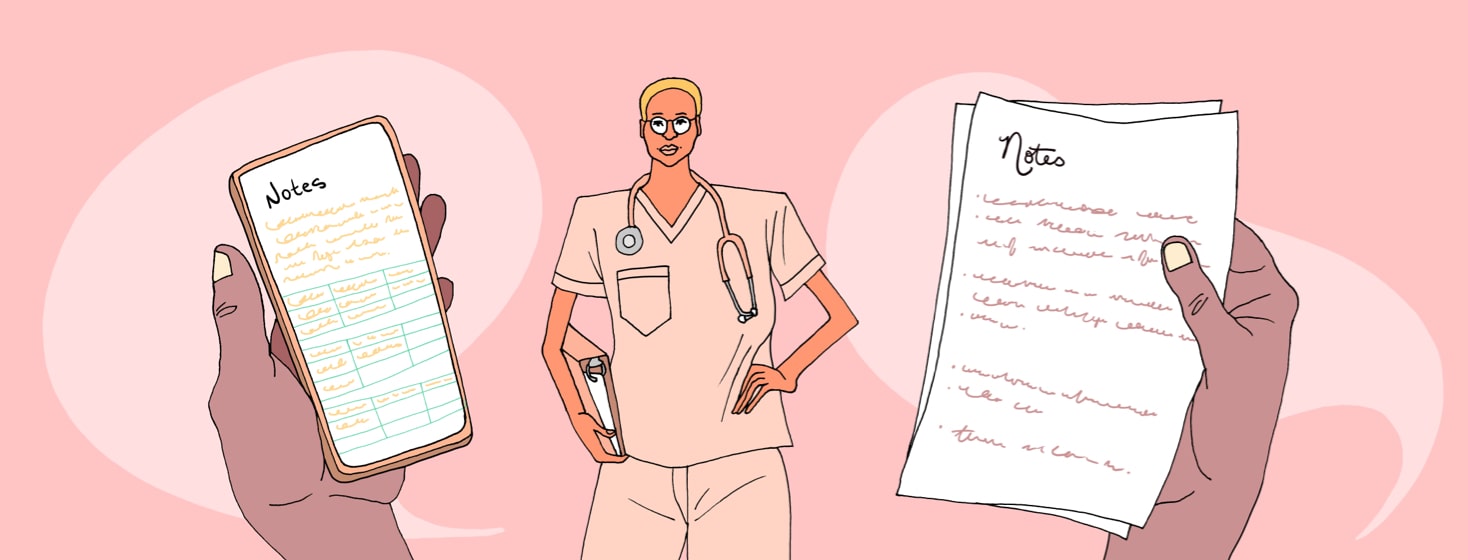Questions To Ask Your Doctor After Your Diagnosis
So, you’ve had that appointment. The one you were told you have a diagnosis of COPD. You’ve had time to ponder it, perhaps enough to accept and study it. Now what?
Questions to ask your doctor after COPD diagnosis
Well, one next step is to regroup and compile a new set of questions for your doctor. Here are a few common questions you may want to consider discussing with your doctor at your next appointment.
What is COPD?
You might already have an answer to this question from previous discussions with your healthcare team or your own research. Yet, there's no more harm in posing this fundamental question to your medical professionals.
With the knowledge you've acquired, revisiting this query might trigger that enlightening "aha" moment you've been seeking.
What are the best treatment options for me?
Also, can my current treatment be adjusted to improve how I feel?
We are fortunate to live in a time when we have access to numerous effective medications for managing COPD. However, it often takes time to determine which medications or combinations work best for YOUR specific situation.
Initially, when you receive a COPD diagnosis, your doctor may start you on some foundational medications. Alternatively, if your breathing is relatively stable, your doctor might not prescribe any medication at first.
As you attend follow-up visits and if you find that you're still experiencing symptoms, it's a good idea to raise this question. You never know. A simple adjustment to your treatment plan might be all that's required to enhance your overall well-being.
How can I monitor my condition at home?
While some physicians introduce action plans as soon as you receive a COPD diagnosis, they can sometimes be overlooked during initial appointments, especially if you're already inundated with information. However, there may come a day when you encounter new or worsening symptoms, which can be overwhelming and stressful.
While we hope such situations do not arise, being prepared is essential. Action plans offer clear guidance on the steps to take during these moments, making potentially stressful situations more manageable.
Therefore, it might be a good idea to include action plans on your list of topics to discuss with your doctor at your next appointment.
Would pulmonary rehabilitation benefit me?
Research strongly suggests that the majority of individuals with COPD can experience significant benefits by participating in pulmonary rehabilitation programs. These programs are regarded by many COPD experts as pivotal non-medicinal treatments for managing the condition.
While pulmonary rehabilitation may not provide a cure, it can complement your medication regimen and contribute to a higher quality of life.
In many regions, these programs are supervised by respiratory therapists who play a pivotal role in not only guiding you through tailored exercises but also in enhancing your knowledge of COPD and how to effectively manage it.
Pulmonary rehabilitation is, therefore, a valuable resource. If your doctor has not yet discussed or recommended it, this might be an opportune moment to inquire about its potential benefits for your COPD management.
Are there any lifestyle changes I should consider?
Your lifestyle plays a critical role in effectively managing COPD. While you may have already touched upon lifestyle changes during your initial appointments, it's still a valuable topic to revisit during subsequent visits.
This ensures that nothing important has been overlooked and provides an opportunity to fine-tune your COPD management plan.
For example, if you smoke, discussing strategies to quit with your doctor remains crucial, as it can significantly slow down the progression of the disease. Additionally, exploring dietary adjustments, stress management techniques, and potential support groups can further enhance your COPD management and overall quality of life.
Navigating the journey after diagnosis
I can empathize with the overwhelming nature of receiving a COPD diagnosis. Frequently, after that initial appointment, it's common to leave with more questions than answers.
It's also entirely normal for questions to continue arising even after your appointments as your curiosity and the desire to delve into your own research grows.
The questions listed here and those you come up with on your own can help guide you through the chapters on understanding, treatment, and lifestyle adjustments.

Join the conversation